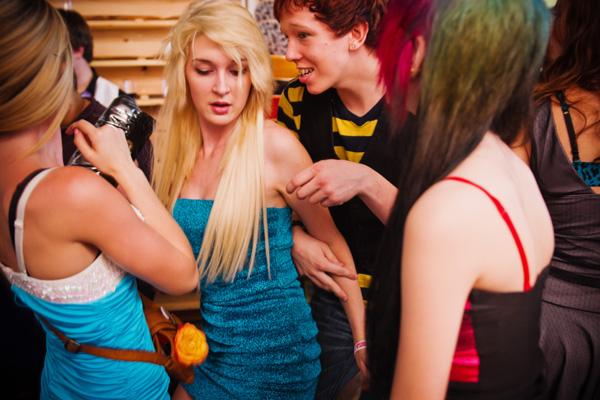Jamie Hubley was a young teen who loved music, singing and being with friends, but there was one thing that made him different – he was gay.
“He would make jokes about people making fun of him, but I knew that it hurt him. I think it was his way of dealing with it,” says Hubley’s close friend Stephanie Wheeler.
But Hubley couldn’t deal with the homophobic bullying he was the target of, and, on Oct 14, he took his own life after leaving a suicide note online.
The message is heartbreaking: “being sad is sad. I’ve been like this for way too long. I can’t stand school, I can’t stand earth, I can’t stand society, I can’t stand the scars on my arms, I can’t fucking stand any fucking thing.”
Just one year earlier, Hubley was exploring his sexuality and coming to terms with the fact he was gay. It was at this time that he came out to Wheeler.
“I think it was a big step for him, but I think he was comfortable enough with me to know that I wouldn’t say anything. He was not ready to tell everybody, but he was willing to tell certain people,” Wheeler says.
When he was ready, Hubley came out to all his friends on Facebook. Wheeler says that after that he became “completely flamboyant” and would regularly update his status to read, “find me a boyfriend.”
Hubley didn’t find a boyfriend. Instead, he fell prey to bullies who made his life miserable.
“I think that right after he came out people started to tease him about it. He had been bullied before because people always had a suspicion, but as soon as he came out it was almost like a free ride to make fun of him,” says Wheeler.
She says she tried stand up for him, but whenever she did, she was also bullied and called a lesbian. She dismisses the effect this had on her, saying that everyone is entitled to an opinion.
But Hubley couldn’t dismiss ongoing verbal and cyber attacks, although he tried.
“The thing with Jamie is that he would usually turn the other cheek, and I think it helped a lot. The bullying went down when he didn’t react to it,” she says. “I guess it was on his Tumblr account where all of his anger came out. He used that as a way to try and deal with it instead of confronting people about it.”
Hubley’s Tumblr blog provides a series of painful snapshots of his life. Most of his postings were one-liners, but occasionally Hubley vented and let his feelings pour out.
In one recent post he wrote, “I don’t know if I’m annoying, embarrassing or they just don’t like me. I hate being the only open gay guy in my school… it fucking sucks. I really want to end it. Like all of it, I’m not getting better, there’s three more years of high school left.”
Wheeler finds it hard to describe what Hubley was like.
“It’s hard to describe him in one sentence. I couldn’t even describe him in a novel. He was so colourful,” she says. “My favourite thing about him was how he would put his problems aside for others — put everybody else first and then worry about himself later.”
It’s too late to know what might have happened if Hubley had put himself first; all Wheeler knows is that she lost a friend and she hopes people will start looking out for each other.
“The fact that he was trying to reach out for so long and nobody was paying attention – I think that people really just need to start looking for things like that. Start looking for people who aren’t accepted and welcome them in,” she says.

 Why you can trust Xtra
Why you can trust Xtra


